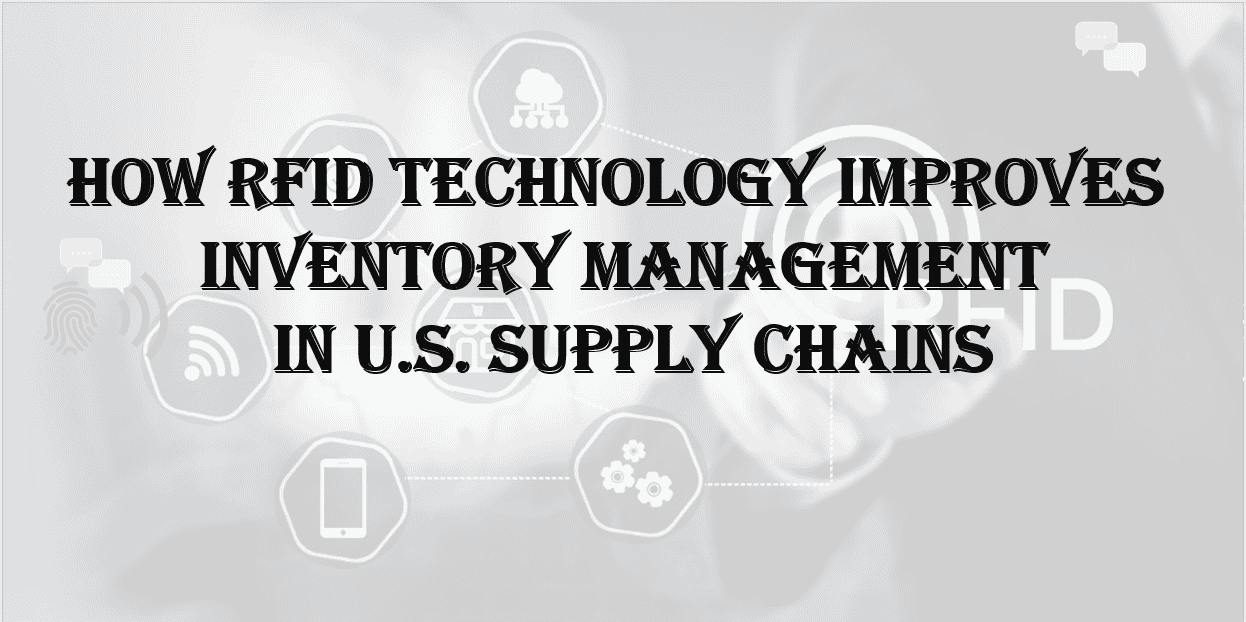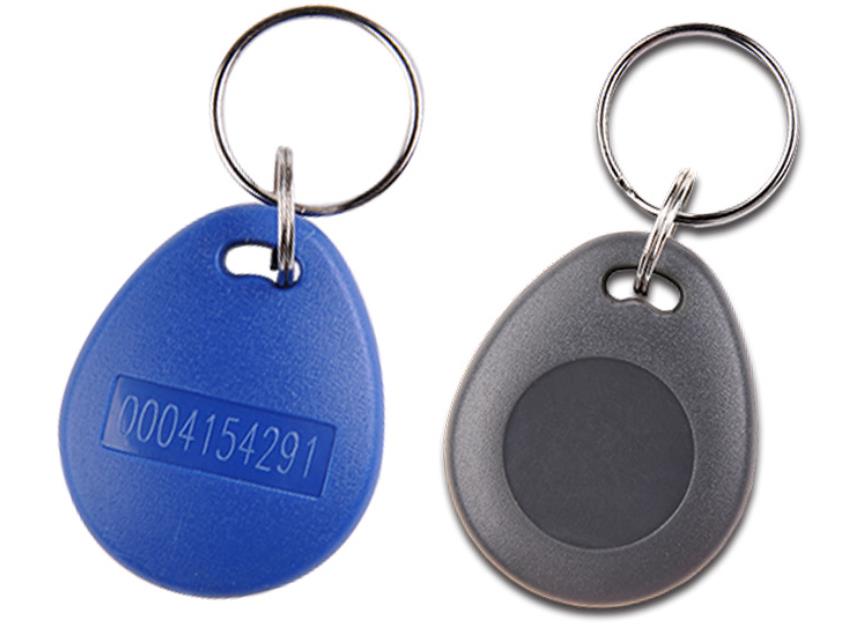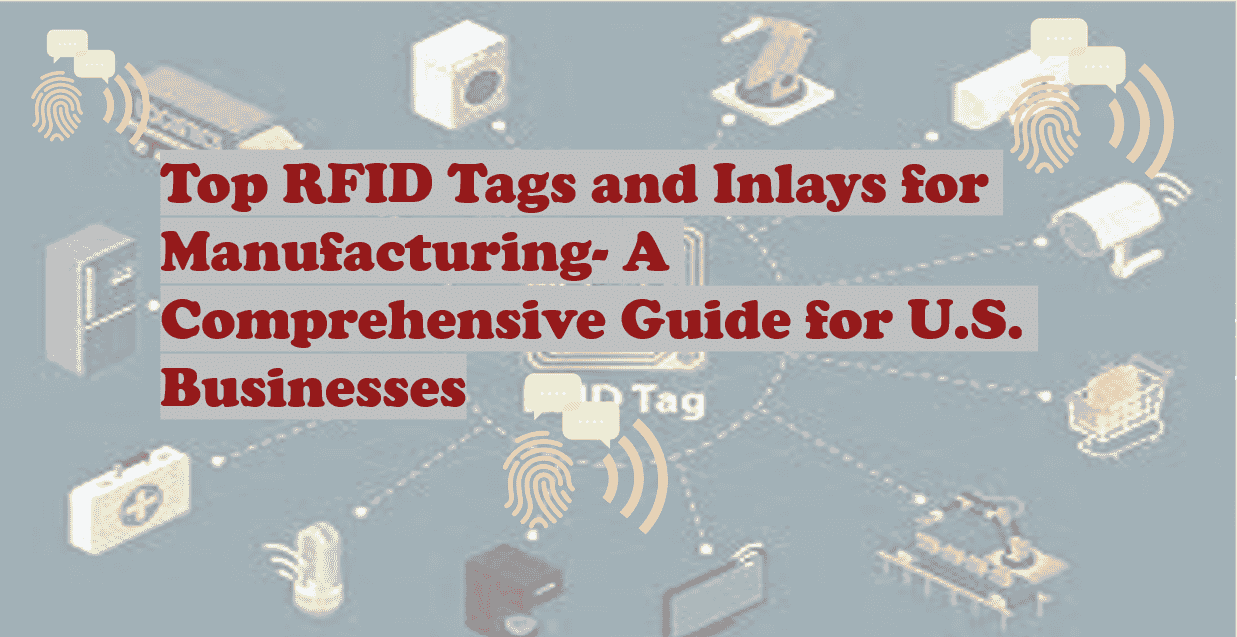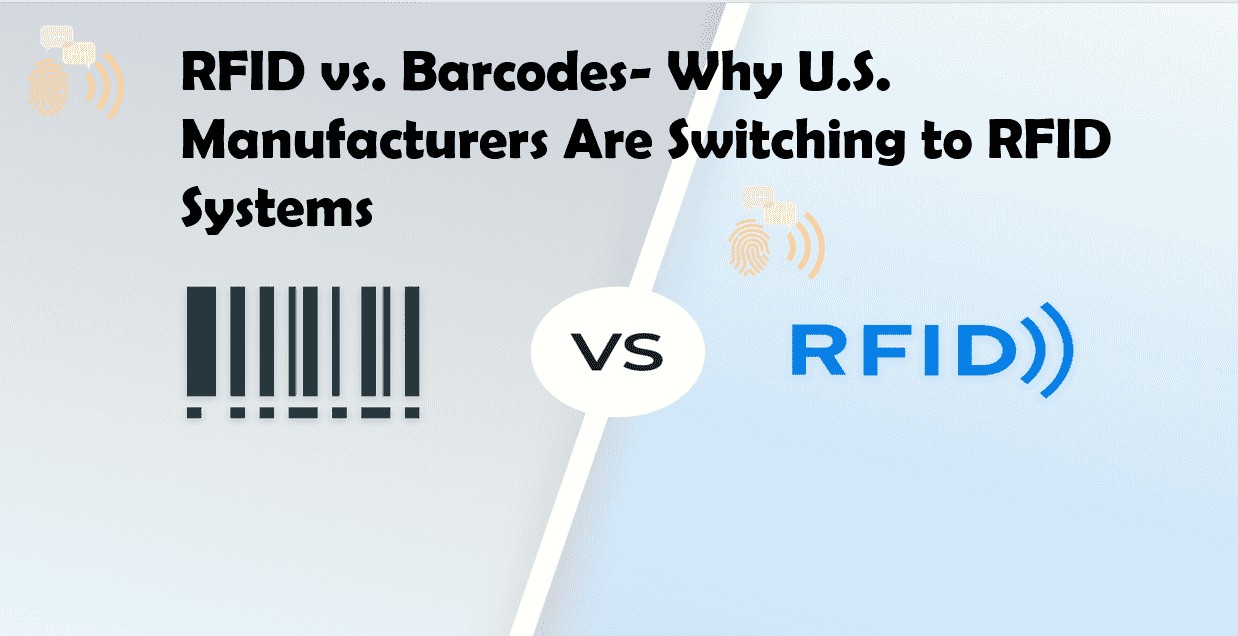How RFID Technology Improves Inventory Management in U.S. Supply Chains

How RFID Technology Improves Inventory Management in U.S. Supply Chains
In the fast-paced world of supply chain management, inventory control is a critical element that ensures businesses run smoothly and efficiently. Traditionally, managing inventory has been a complex process, often prone to errors, inaccuracies, and inefficiencies. However, with the advent of Radio Frequency Identification (RFID) technology, businesses across the U.S. are experiencing transformative improvements in their inventory management practices. RFID technology, which uses electromagnetic fields to automatically identify and track tags attached to objects, is revolutionizing the way companies handle inventory in supply chains. This article delves into how RFID technology enhances inventory management in U.S. supply chains and highlights popular RFID solutions tailored for different manufacturing sectors.
Table of Contents
- Introduction
- The Role of RFID Technology in Inventory Management
- How RFID Improves Inventory Management Across Manufacturing Sectors
- Popular RFID Solutions Tailored for Manufacturing Sectors
- Conclusion
The Role of RFID Technology in Inventory Management
RFID technology improves inventory management by providing real-time, accurate, and automated tracking of products and assets. Traditional inventory methods, such as barcode scanning and manual stocktaking, are often time-consuming and prone to human error. RFID eliminates many of these inefficiencies by offering several advantages:
-
Increased Efficiency: RFID systems can scan multiple items simultaneously without requiring line-of-sight, unlike barcodes that need to be scanned individually. This feature significantly speeds up inventory tracking and stocktaking processes, reducing the time spent on manual labor.
-
Enhanced Accuracy: RFID technology reduces human error by automating the data collection process. Each RFID tag contains a unique identifier that is automatically captured by RFID readers, ensuring accurate tracking of inventory at every stage of the supply chain.
-
Real-Time Visibility: RFID-enabled systems provide real-time data about inventory levels, location, and movement. This visibility is crucial for making informed decisions, optimizing stock levels, and ensuring that products are readily available when needed, reducing the risk of stockouts or overstocking.
-
Reduced Shrinkage: One of the most significant benefits of RFID technology is its ability to minimize shrinkage. By tracking every item from the moment it enters the supply chain until it reaches the customer, RFID helps reduce the risk of theft, misplacement, or loss.
-
Cost Savings: While the initial investment in RFID technology may seem high, the long-term cost savings from reduced labor, fewer errors, and minimized shrinkage make it a cost-effective solution for inventory management.
How RFID Improves Inventory Management Across Manufacturing Sectors
RFID solutions are versatile and can be tailored to meet the needs of different manufacturing sectors. Let’s explore some popular RFID solutions designed for specific industries.
1. Retail and Consumer Goods
In the retail sector, inventory management is critical to ensuring that products are always available for customers while minimizing overstock or understock situations. RFID technology plays a crucial role in improving stock visibility and enhancing the customer experience.
-
RFID Solutions: RFID tags are often attached to clothing, electronics, and other consumer goods to track product movement in stores and warehouses. RFID readers placed at strategic locations—such as entrances and exits—allow for automated inventory tracking, reducing stockouts and improving replenishment processes.
-
Real-World Benefits: Retailers benefit from increased shelf accuracy, better stock visibility, and faster restocking. RFID helps retailers reduce out-of-stock situations by providing insights into inventory levels, thus improving customer satisfaction and sales.
2. Automotive Manufacturing
In the automotive industry, managing the parts and components used in vehicle assembly is complex due to the sheer volume and diversity of items involved. RFID technology helps streamline the tracking of components, reducing errors and downtime during production.
-
RFID Solutions: RFID tags are placed on vehicle parts and assembly components, allowing manufacturers to track them throughout the production process. These RFID tags can hold information such as part numbers, production dates, and specifications, which can be accessed in real-time by workers on the production line.
-
Real-World Benefits: This system improves the speed and accuracy of the assembly process, reduces the chance of using incorrect parts, and minimizes production delays caused by missing or misplaced components.
3. Pharmaceutical and Healthcare Manufacturing
The pharmaceutical and healthcare industries face strict regulations regarding inventory tracking, especially with regard to drug expiration dates and patient safety. RFID technology is invaluable in maintaining compliance with these regulations and ensuring the safe handling of products.
-
RFID Solutions: RFID tags are used to track medications, medical devices, and supplies throughout the supply chain. These tags provide detailed information about product origin, expiration dates, and storage conditions, ensuring that products are handled correctly at every stage.
-
Real-World Benefits: RFID improves traceability, ensuring that medications are not only stored in optimal conditions but also that they reach the correct destination before their expiration date. This reduces the risk of counterfeiting and ensures patient safety, while also optimizing inventory management in healthcare facilities.
4. Food and Beverage Industry
Inventory management in the food and beverage industry is particularly challenging due to the perishable nature of many products. RFID technology allows for better tracking of perishable goods, ensuring that they are stored and shipped within the correct temperature ranges and are sold before reaching their expiration dates.
-
RFID Solutions: RFID tags monitor temperature-sensitive products like meat, dairy, and frozen items. They can also track the movement of items across the supply chain, ensuring that inventory is rotated efficiently and that products are delivered on time.
-
Real-World Benefits: RFID technology reduces spoilage by providing real-time temperature monitoring and alerts. This reduces waste, ensures compliance with health regulations, and enhances supply chain efficiency.
Popular RFID Solutions Tailored for Manufacturing Sectors
Several RFID solutions are tailored to meet the needs of different industries, each offering unique features and functionalities:
-
Zebra Technologies: Zebra’s RFID solutions cater to industries like retail, manufacturing, and logistics. Their solutions include handheld RFID readers, fixed readers, and smart labels, enabling real-time inventory tracking and visibility.
-
Impinj: Specializing in ultra-high-frequency (UHF) RFID technology, Impinj offers solutions for supply chain management, including item-level tracking for retail and inventory management solutions for healthcare and logistics industries.
-
Avery Dennison: Known for their RFID tags and labels, Avery Dennison provides customized RFID solutions for retail, apparel, and automotive industries, focusing on improving inventory accuracy and supply chain efficiency.
-
Honeywell: Offering a range of RFID products, including handheld RFID scanners and fixed readers, Honeywell supports industries such as manufacturing, healthcare, and logistics with solutions designed to streamline operations and improve inventory control.
Conclusion
RFID technology is transforming inventory management in U.S. supply chains by improving efficiency, accuracy, and reducing shrinkage. Whether in retail, automotive, healthcare, or food manufacturing, RFID solutions provide real-time visibility, automated tracking, and enhanced accuracy, all of which lead to more efficient supply chain operations. As businesses continue to embrace RFID technology, they will reap the long-term benefits of improved inventory control, reduced costs, and a more streamlined, resilient supply chain.
Related Products
Here are some facts and statistics that can be used to support the article on how RFID technology improves inventory management in U.S. supply chains:
-
Global RFID Market Growth:
- The global RFID market is projected to grow from $13.4 billion in 2023 to $29.4 billion by 2030, reflecting a compound annual growth rate (CAGR) of 11.7% during the forecast period. This indicates the increasing adoption of RFID technology across various industries, including supply chain management. (Source: Fortune Business Insights)
-
Retail Inventory Accuracy:
- According to a report by Zebra Technologies, retailers who use RFID technology report a 25% increase in inventory accuracy on average, compared to those using traditional barcodes. This increase in accuracy leads to fewer stockouts and overstock situations, improving both customer satisfaction and sales.
-
Reduction in Stock Shrinkage:
- RFID Journal estimates that RFID technology helps reduce retail shrinkage by up to 50%, which can save companies millions of dollars each year. This reduction in theft, loss, and misplacement is one of the key benefits of RFID adoption.
-
Improved Stock Visibility and Efficiency:
- Gartner reports that RFID-based inventory systems can improve inventory tracking efficiency by as much as 30% and can reduce the time spent on stocktaking by up to 75%. This efficiency gain is crucial for businesses looking to optimize their supply chain operations.
-
RFID Adoption in the Automotive Industry:
- According to The Automotive RFID Market Report, more than 70% of automotive manufacturers have adopted RFID technology for tracking parts and components. RFID enables real-time tracking of thousands of parts across production lines, helping to minimize errors and downtime.
-
Pharmaceutical and Healthcare Tracking:
- In the healthcare sector, a 2019 study by the Healthcare Supply Chain Association (HSCA) found that the use of RFID technology in healthcare reduced inventory discrepancies by over 40% and helped improve tracking of medical devices and pharmaceuticals. This is particularly important for ensuring compliance with safety and regulatory standards.
-
Temperature Monitoring in Food and Beverage:
- The use of RFID tags to monitor temperature-sensitive products has shown a 30% improvement in compliance with temperature regulations, helping to prevent spoilage and waste in the food and beverage industry. This is especially vital for perishable goods like dairy and meat.
-
ROI on RFID Investments:
- A study by the University of Arkansas found that for every $1 invested in RFID technology, businesses can expect an average return of $7.50 due to improved inventory accuracy, operational efficiency, and reduced losses. This demonstrates the strong ROI potential for companies adopting RFID in their supply chains.
These statistics and facts underscore the significant impact RFID technology has on improving inventory management, efficiency, and accuracy across different sectors in U.S. supply chains.





